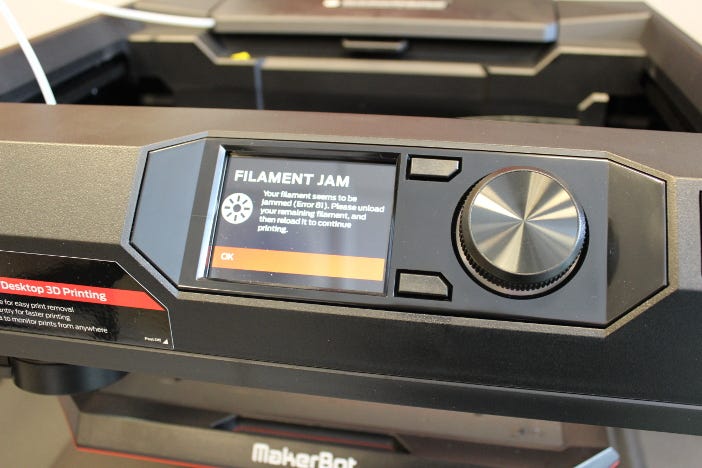01-04-2016: MakerBot announced the Smart Extruder+
The successor to the infamous solution that halted the company’s dynamic growth
On January 4, 2016, MakerBot, then the leader in the desktop 3D printer market, unveiled the Smart Extruder+. It was an improved version of the original, notorious Smart Extruder, which had been plagued by numerous technical issues, including filament detection failures and insufficient durability of components.
These flaws led to a cascade of problems for the company, ultimately contributing to the departure of MakerBot’s founder, Bre Pettis, his successor Jenny Lawton, the closure of factories and retail outlets, heavy employment reduction, and a significant blow to the company’s reputation in the market. The troubles also affected Stratasys, MakerBot’s parent company, which faced a 2015 lawsuit from a group of shareholders alleging concealment of knowledge about the technical state of the original Smart Extruder.
The original Smart Extruder was intended to be revolutionary—a swappable module designed to simplify the printing process and minimize downtime. Introduced in January 2014 as the heart of a new generation of MakerBot 3D printers—the 5th Gen, Z18, and Mini—it was supposed to elevate 3D printers to the status of everyday household devices. However, these promises proved hollow. Numerous user complaints about 3D printing failures quickly turned against the company, leading to a sharp decline in customer trust.
The launch of the Smart Extruder+ aimed to rebuild user confidence and improve MakerBot’s image. The new version featured enhanced components, an improved sensor system, and extended durability, which was verified through tests conducted by MakerBot and its parent company, Stratasys. The manufacturer claimed the extruder would perform reliably for over 700 hours of printing and introduced a warranty twice as long as before—up to six months.
And indeed, things improved significantly. The new extruder performed particularly well in the Z18 model, which became one of MakerBot’s flagship products, popular among businesses due to its large build volume.
Despite MakerBot’s efforts, the company’s reputation remained tarnished. Additionally, in July 2015, Stratasys, MakerBot’s parent company, faced a class-action lawsuit from shareholders. The accusations centered on misleading investors about financial forecasts and technological issues with MakerBot’s products.
Source: www.stratasys.com






